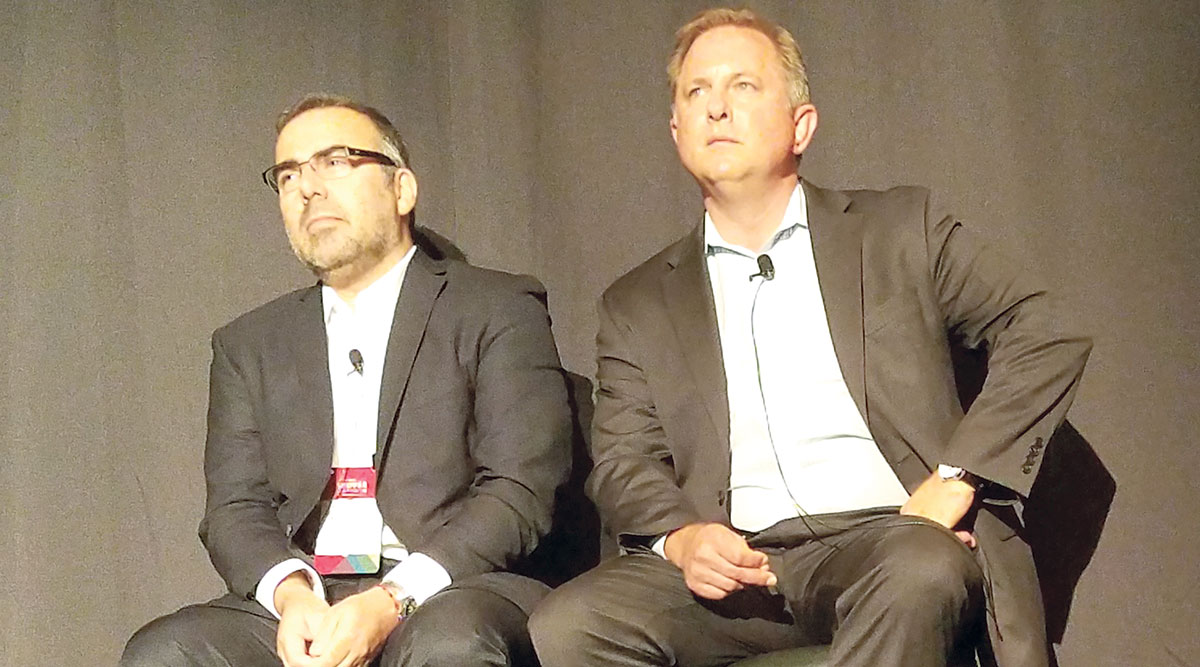Senior Reporter
Uncertainty Clouds NAFTA Changes for Mexico Factories

AUSTIN, Texas — Manufacturers in Mexico aren’t as concerned about President Donald Trump’s recent threats to dump or renegotiate the North American Free Trade Agreement as some recent public reports have suggested, according to executives speaking at a Transplace Symposium here.
But some uncertainty remains over possible changes to the currency exchange rate between the United States and Mexico, Mauricio Rojas, vice president of international trade compliance for Grupo Prodensa in Mexico, said during a session at the event.
Transplace, a third-party logistics provider, held its 2017 symposium here May 8-10.
“A few days ago, April 26, I woke up around 5 a.m., [and] the exchange rate was 80.6 pesos,” Rojas said. “A few hours later, President Trump announced he was going to get out of NAFTA. An hour after that, from 80.6, the exchange rate went to 19.3. This is a challenge we are living every single day.”
“NAFTA has never been country versus country,” said Jose Minarro, senior vice president of Mexico customs for Transplace. “It’s always been a relationship of a company helping another company do business.”
However, Rojas said he believes that the agreement does not need a major revision but could use an “update.”
“It is obsolete in some certain chapters,” Rojas told executives during one session. “I think we are ready to negotiate, because we know what the worst-case scenario is.”
But Troy Ryley, Transplace’s senior vice president for Mexico operations, said, “This is a hard one to predict.”
Ryley said he believes that the motivations behind Trump’s calls to renegotiate NAFTA include stopping illegal immigration, increasing national security and fixing unfair aspects of the existing trade agreements.
“What the outcome will be is pure speculation at this time. Nobody really knows,” Ryley said. “There’s a lot of posturing for negotiation. Some days, we’re looking at fixing the agreement, and the next day, we’re canceling the agreement. It’s caused some uncertainty in the markets.
“But I know this,” he added, “nobody wants a trade war.”
He recalled an earlier trade war with Mexico when a federal pilot program to allow Mexican drivers to travel into the U.S. interior was canceled by Congress due to pressure from the Teamsters union.
“I thought Mexico’s response [then] was surgical and brilliant,” Ryley said. “They implemented $2.6 billion worth of trade sanctions against specific states that were Teamsters states. The message for everybody in this room is our trade is so intertwined that Mexico does have leverage in the negotiations.”
Yet 80% of Mexico’s exports come to the United States, which puts them at a disadvantage when they sit at negotiations table, he said.
Ryley said another challenge in any renegotiations will be the complexity of the NAFTA agreement, which is about 2,000 pages long.
Some of the potential outcomes of renegotiations could include lower trucking rates, reduced trade creating more warehouse space in key markets and an increase in ocean rates as demand increases.




